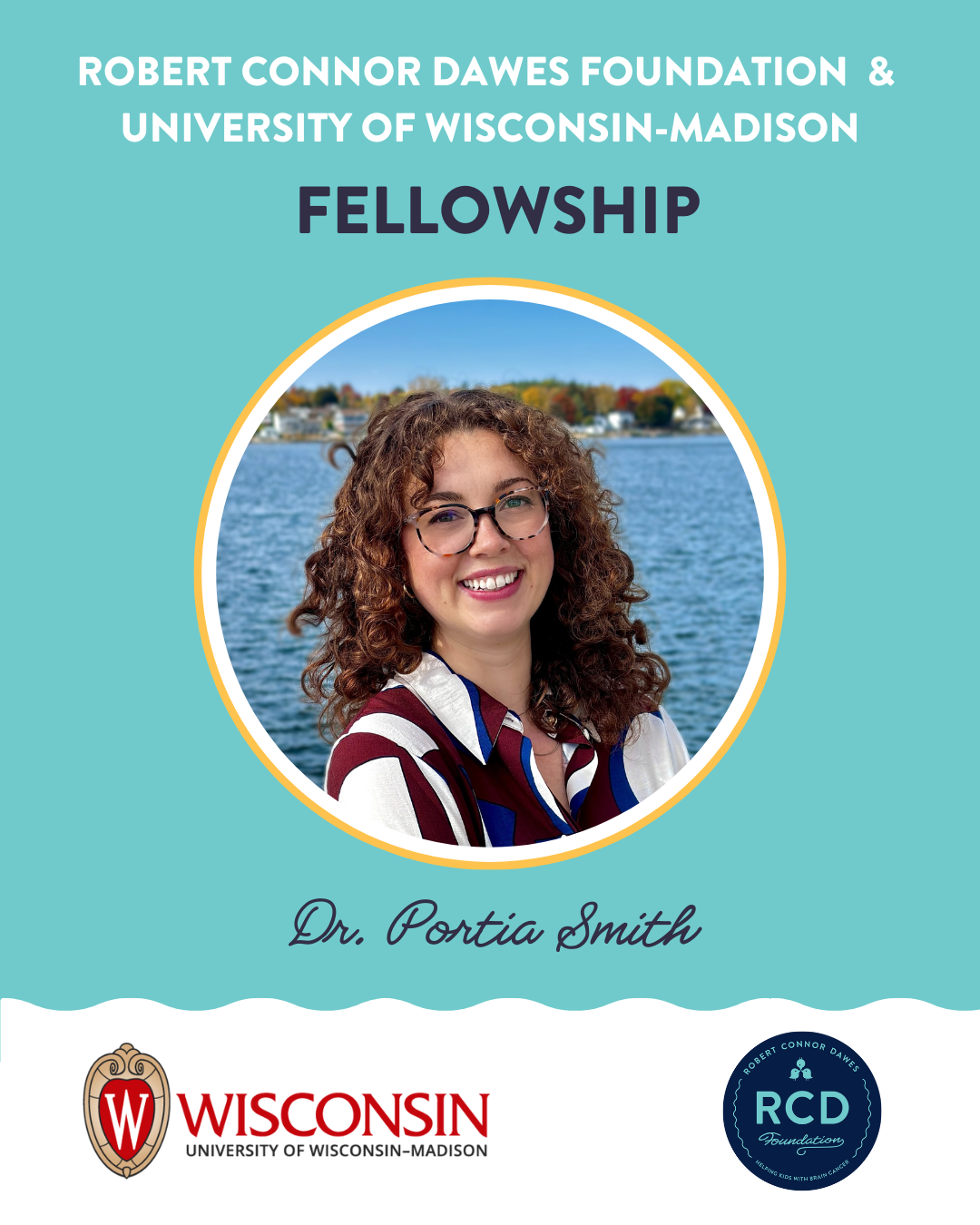Robert Connor Dawes Foundation together with the University of Wisconsin–Madison Welcomes New Fellow, Dr. Portia Smith, to Undertake Novel Immunotherapy Research for Pediatric Brain Cancer.
Read the full media release HERE.

Portia’s Personal Bio:
Portia R. Smith, Ph.D., is a Postdoctoral Research Associate in Dr. Christian Capitini’s lab within the Department of Pediatrics at the University of Wisconsin (UW)-Madison. A native of Vermont, she earned her B.S. in Biological Sciences from the University of Vermont in 2019, where she balanced her love of skiing and hiking the Green Mountains with her role as an undergraduate research assistant. Continuing her passion for scientific research, she pursued her Ph.D. in Comparative Biomedical Sciences under the advisement of Dr. Igor Slukvin at the Wisconsin National Primate Research Center at UW-Madison, completing her dissertation in December 2024. Her thesis project focused on developing stem cell-derived cellular immunotherapies for treating solid tumors. Outside the lab, Portia enjoys reading, cheering on the Wisconsin Badgers basketball team, and exploring the Midwest with her friends and fiancé.
Research Project:
Pediatric high-grade gliomas (HGGs), including diffuse intrinsic pontine glioma (DIPG) and glioblastoma (GBM), continue to have a poor prognosis with near 100% mortality. Traditional approaches, including surgery, radiation, and chemotherapy, offer limited hope. However, the discovery in 2018 that GD2, a tumor-associated marker, is highly expressed on DIPG and GBM has driven renewed interest in chimeric antigen receptor (CAR) T cells. CAR T cells are an advanced cancer immunotherapy comprised of modified T cells to contain tumor-specific “receptors” to seek out and destroy cancer more effectively. Previous studies by the Capitini Lab, partnered with colleagues at the School of Engineering on campus, demonstrated that CRISPR/Cas9-edited GD2 CAR T cells were highly effective against GD2+ tumors compared to traditional retroviral-transduction techniques. Aiming to advance this technology, this project focuses on creating “super-immune” CAR T cells engineered to target multiple tumor antigens, including GD2, with the hope of offering a novel approach to treat pediatric HGGs.
The Fellowship was awarded in January this year and will commence this February. Funding is over three years and builds upon RCD’s previous investments in immunotherapy research with Professor Misty Jenkins laboratory in Melbourne and separately, Professor Brandon Wainwright’s laboratory in Queensland laboratory.
The RCD Foundation acknowledges the generous support of major donors Kim and John Schlifske, Colleen and Gene Jacobus, and The Jacobus Foundation for helping make this important initiative possible.



